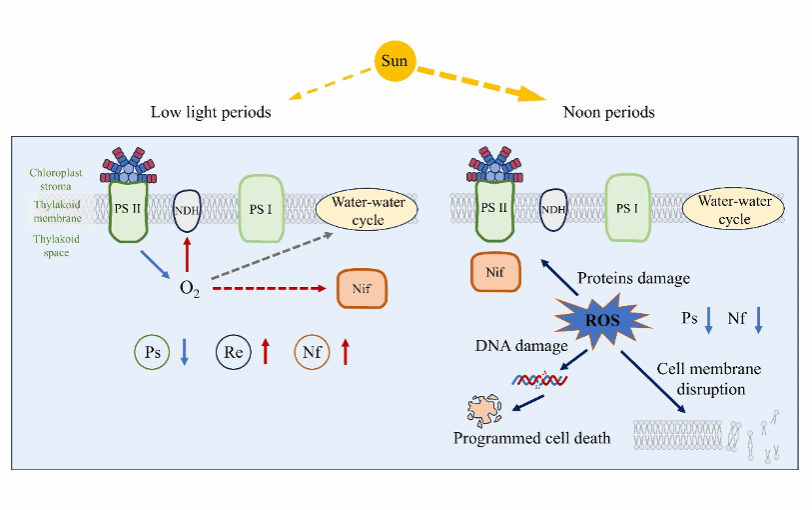Abstract
The diazotrophic cyanobacterium Trichodesmium is sensitive to ultraviolet (UV) radiation under phosphate (P)-replete conditions, but little is known about UV impacts on its physiology under P-limitation. Here we show that periodic exposures to low or moderate levels of UV (4–12 W m−2 UVA, 0.5–1 W m−2 UVB) under P-limited (0.5 μM) conditions enhanced its growth by approximately 31% and increased its N2-fixation rates by 75–175%. N2-fixation efficiency (N2 fixed per O2 evolved) increased by 41–245% at low and moderate levels of solar radiation with UV compared to under low photosynthetically active radiation (PAR) alone (150 μmol photons m−2 s−1). Particulate organic N-normalized N2-fixation rates were enhanced up to 173%, with increasing inhibition of photosynthetic O2 evolution and quantum yield in P-limited cells. Exposure to high solar radiation levels with UV (1500 μmol photons m−2 s−1 PAR, 32 W m−2 UVA, 2 W m−2 UVB) decreased N2-fixation rates of P-replete (5 μM) cells by up to 88% and harmed Trichodesmium in P-limited cultures, leading to rapid death within 2 weeks. Our results imply that UV irradiances during most sunlit periods other than noon are beneficial to Trichodesmium, especially under P-limited conditions, offering an underlying mechanism for the common observation of surface Trichodesmium blooms in tropical oceans.

Xu, T. P., Hutchins, D. A., Gao, K. S.* 2025. Moderate exposure to ultraviolet radiation under phosphate limitation increases Trichodesmium nitrogen-fixation and suppresses photosynthesis. Limnology and Oceanography. doi: 10.1002/lno.70230
https://aslopubs.onlinelibrary.wiley.com/doi/10.1002/lno.70230